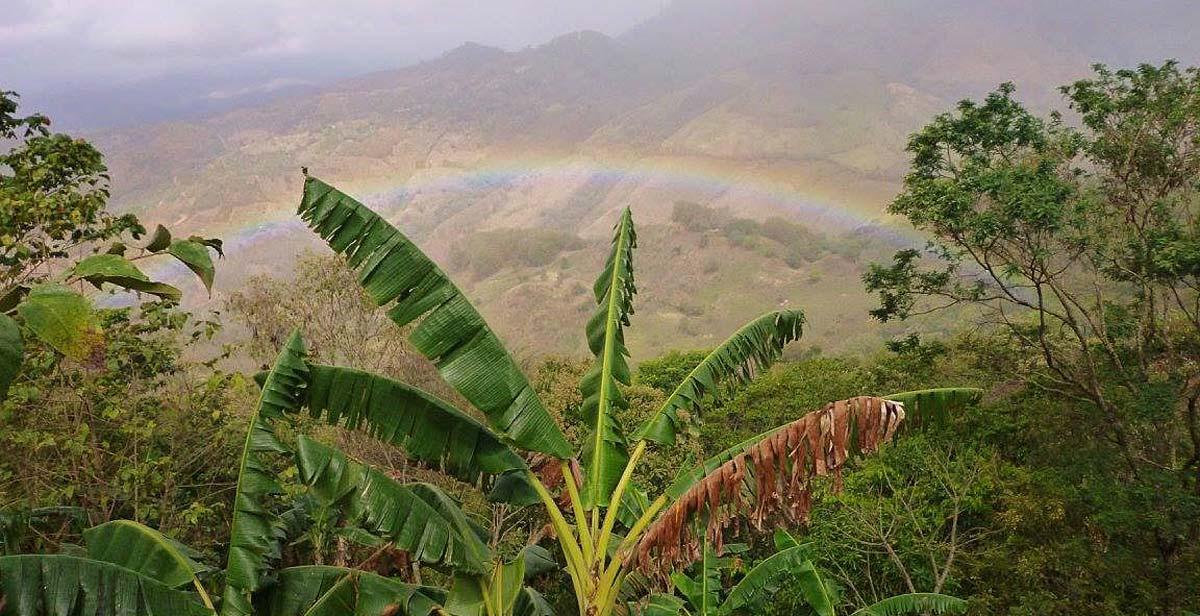To live in Nicaragua is to live immersed in great swathes of beauty. Certainly the same could be said of the UK, but as circumstances have not yet forced me to spend a lot of time in contact with its natural splendours, I remain shamefully ill-equipped to write about them.
But for over two months now I have awoken each morning to inescapable greenery, strange new sounds, and landscapes that undulate dramatically towards enticing horizons. Whichever direction one should choose to look presents a magnificent picture. Perhaps more relevant to a camera-less blog writer there is the possibility of a thousand words.
Yet there are some treasures in which I am unable to share. In El Bramadero, below my feet the river runs at a mere trickle. In Parcila, it runs no more.
Of course this is not an exclusively Nicaraguan tragedy. I have long since abandoned the hope that I will be able to bear witness to the stark majesty of the Antarctic, and every day more and more creatures join the long list of those that we will only be able to tell our children once walked this earth; more still that we know so little of to not even be able to afford the luxury of being thus preserved in lore.
As I look around the land I am happy to have called home, at all that which remains untouched in its beauty - and all the more beautiful for being untouched - I am helpless to avoid some nagging questions: is there anything in the natural world whose natural beauty outweighs its potential utility? Does anything that remains only do so because we permit it to, having not yet reached the point where we need to use its resources?
If there should exist an intelligent omnipresence in the universe, I wonder what it would make of our attitude towards the tremendous waters, formidable rainforests and stunning natural variation in climate that have all supported the miracle of life on earth for millions of years. Is the course of human progress set to get us far away from all this?
Perhaps we are unaware of the course we are taking. Perhaps, worse, it is the course we have all chosen for ourselves.
As I write this, the biggest ant I have ever seen seems intent on making my acquaintance - possibly with the curious friendliness that proved the dodo’s undoing; more likely with the cocksure arrogance of one that considers itself to be my superior in the food chain. Whichever the reason, I have had to check an innate desire to give it the same treatment afforded to the dodo. We remain co-existing, only at a slightly greater distance than before.
Therein I believe lies man’s great folly. We seek (or rather we have convinced ourselves that it is human nature to seek) comfort in a world whose wonder necessitates discomfort. We seek the right temperature at the push of a button, heedless of the fatal temperatures which will constitute our legacy. We crave accessories, blind to the bare necessities of which rob others. We have removed ourselves from the food chain, yet we still wish to partake in its spoils at as vast quantities as we desire.
I cannot say if the fate of our earth is an unpreventable one, though the only change we have the power to make is our own. But as I sit striving to find comfort in amongst the myriad peculiar creatures that creep and crawl about me, I am resolutely certain of one thing. To be - and to be a part of all this - exceeds any comfort imaginable.
Written by ICS volunteer John Payne



